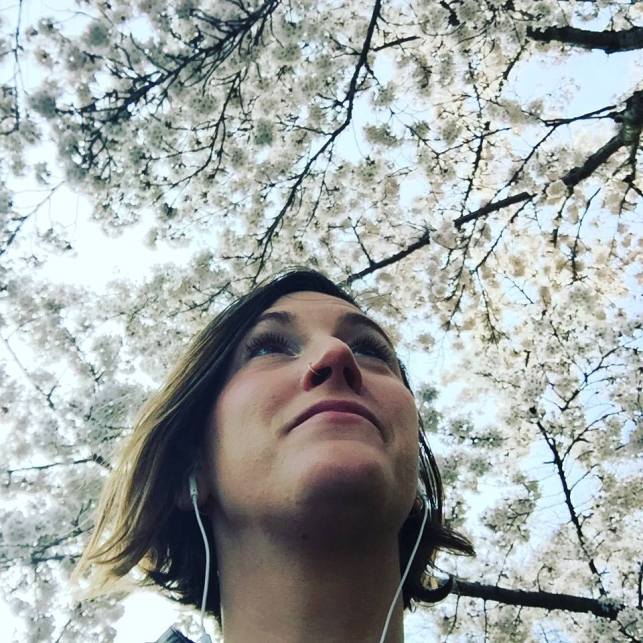The other morning, it was like a lightbulb went off: if I wanted to, I could decide to be happy.
But more significantly, I realized that I could choose to let go of the unhappiness that I’ve been carrying around.
The simplicity of the realization shouldn’t have felt so earth-shattering, maybe, but in the moment, it felt like I had been slapped. It felt like I had been carrying this heavy weight on my back for years now and it had just never occurred to me to put it down.
I can’t say for sure when it happened, but somewhere along the way, I started to see myself as a “naturally sad person.” And as a result, I spent the bulk of my 20s on antidepressants. Instead of acknowledging how risky being happy felt (you are, after all, giving others an opportunity to hurt you, I thought), being sad gave me a sense of control and aloofness.
Ask any high school student—it’s really scary to look like you care about something, or to try at something and fail. For so long, it just seemed easier to not care and not try. So I didn’t work on becoming more content.
If you are a victim of circumstance, then you don’t have to bear the weight of responsibility for your own life. Feeling like a victim and being perpetually unhappy meant that I didn’t have to take ownership of my circumstances, and didn’t have to take risks to make myself feel better—I felt entitled to blame the universe and have others take pity on me, instead of making changes to and being held accountable for my circumstances.
Wearing sadness was like a security blanket (one I thought I looked damn good in), and b*tching and moaning was a fabulous way to bond with people (in an immediate, superficial way, which was all I could handle at the time). Sadness and unfortunate events became my way of creating closeness and intimacy with friends and family. And I became one of those people whose life was never going smoothly. I was collecting drama in order to avoid loneliness.
Depression (and I absolutely understand this is not the universal experience of it) felt like my birthright and something I could wear like different outfits—attaching to and identifying with it, and then learning to walk with a limp. And this, I thought, I deserved credit for. I felt brave for living a difficult life.
Now, after that morning’s realization, happiness feels like uncharted territory; like all of the rules have changed. And it’s terrifying. By letting go of the security blanket I’d come to drape myself in, I now feel light but also naked and exposed. Making joy a goal for every day requires attention and time. I have to be checking in with myself regularly instead of numbing out with compulsive behaviors that don’t serve me in the long term (over shopping, overeating, overdrinking). Seeking satisfaction and contentment in a deeper way means I have to experiment and try new things. And that means risking failure and opening myself up to mockery by others.
But really, nobody’s watching. And if they are, certainly not in the way that we think they are.
I thought there was something courageous about being dissatisfied, something honest about it; but I can see now that in actuality, the bravest among us are those who choose to live openly and optimistically, who grace rooms, relationships, and opportunities with light and warmth regardless of how it’s reflected back.
I think it was in high school that being happy stopped being cool. And I think, now, I have finally graduated.
~
Bonus: 5 Mindful Things to Do Each Morning
~
Author: Pam Stewart
Image: Author’s Own
Editor: Catherine Monkman
Copy & Social Editor: Callie Rushton


 Share on bsky
Share on bsky





Read 0 comments and reply